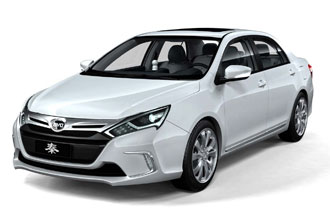China has become the bellwether for the emergence of electric cars into the mainstream due to the scale of its auto market and the power of its central government to issue industry-changing decrees.
“The explosion of the electric car” will only occur when the Chinese government passes laws that compel large numbers of its citizens to buy electrics, said Carlos Ghosn, the CEO of Renault-Nissan which makes the Nissan Leaf, one of only a handful of all-electric cars intended to appeal to the mass market.
Cars like the Leaf, the GM Volt and the Tesla Model S have managed to excite gearheads and eco-zealots but have yet been unable to make up even 1% of sales in the US and European markets. That’s because the kinds of measures their governments are empowered to take — tax incentives and stricter emissions standards — aren’t enough to overcome the hurdles of range-anxiety and higher cost.
Only stronger incentives will take electric cars out of the domain of wishful thinking and half-hearted investments. China has the will and the authoritarian power to provide those incentives. Beijing is motivated by two overriding concerns: the world’s worst levels of air pollution and the desire to carve out a dominant share of the global auto market. Electric cars provide a way to address both concerns.
Last June China’s cabinet issued a plan that calls for the number of electric cars on China’s roads to hit 500,000 by 2015, then increase tenfold to 5 million by 2020. The government is offering subsidies as well as exemption from increasingly stringent local laws that have severely limited the number of license plates issued. That latter is a powerful incentive.
In Beijing and other major cities consumers must win a lottery to obtain the license plates required to buy a car. Each month only 20,000 winners are picked from about 1.4 million entries. In Shanghai a limited number of plates are auctioned off to the highest bidder, with the prices typically going for upwards of about $12,000.
Under the central government’s incentives, a consumer who buys an electric car can bypass all that. That’s the kind of incentive that can make electric cars seem like the only truly practical alternative.
China is an auto market of about 25 million cars in 2013 — about twice the size of the US market. If the government enacts laws to make even 10% of carbuyers opt for electrics each year, the global auto industry would suddenly grow 20-fold. At that level economies of scale would make prices plunge while advances in battery efficiency will accelerate as automakers devote more resources to building a car that can make or break their global fortunes.


